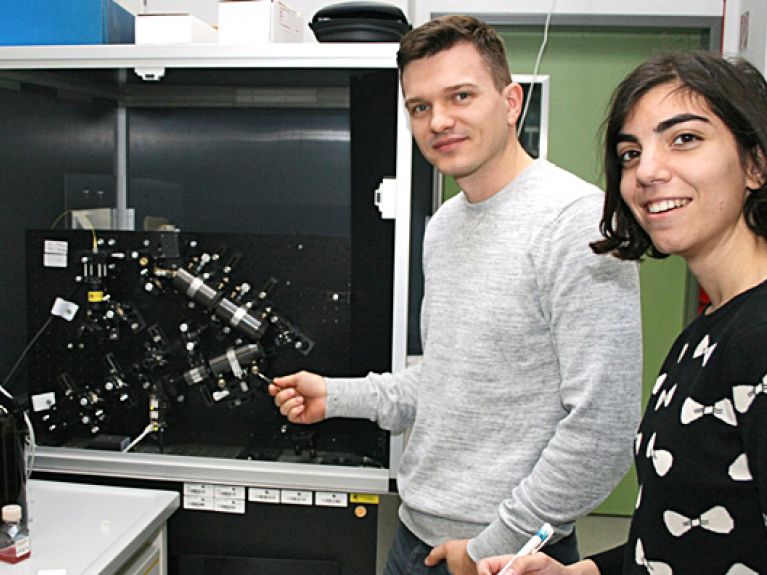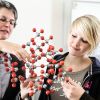Green Talent from Israel
Emily Elhacham, a 25-year-old scientist at Tel Aviv University, is one of the Green Talents 2016: In Germany she met German and international scholars who, like her, champion creative environmental technologies.

“Sometimes I myself can’t even believe how well things are going for me,” says Emily Elhacham. The young scientist from Tel Aviv is due to submit her Master’s thesis on sensing technologies and systems in a few months. “This topic really drives me and will continue to do so in future too,” notes Emily. She has just returned from the Green Talent Forum in Germany. Emily had no worries at all that the trip could pose a problem so close to the submission of her thesis. “On the contrary!” She is now even more motivated than before, she adds.
The German Federal Ministry of Education and Research (BMBF) bestows the Green Talents awards once a year to up-and-coming international scientists for creative research in the field of environmental technology. The organizers look for ideas that are capable of making a lasting contribution to overcoming global challenges such as climate change, dwindling energy resources and mass environmental pollution. The 25 ‘Green Talents’ come from all disciplines, from marine biology to chemistry to the social sciences – and from all over the world. They discuss and swap ideas with renowned experts, professors and institutes from Germany and collaborate on future challenges for two weeks. “The great thing about it was that we spoke directly with the professors and experts,” relates the student enthusiastically. For Emily the Helmholtz Centre for Polar and Marine Research in Bremerhaven was particularly fascinating; the international group was even permitted to board the research ship “Heinke”. “We thought about which research methods from other fields could also be used in the oceans.”
Emily’s research into sensor technology could become interesting here, for instance. “When a drinking water resource is polluted it usually takes a while before water samples are taken, tested in the lab and the results communicated,” she explains. In the worst case the water is already coming out of taps or has impacted on the ecosystem. The nano-system detects water pollution in real time, as small sensors in the water sources or pipes instantly signal when a value drastically changes. “This enables us to respond more quickly and protect people and the environment more effectively.”
The second stage of the Green Talents Forum consisted of individual meetings between the award-winners and partners from German universities in whose research fields they are interested. Emily had three names on her list: Mirsky, Corsmeier and Kropp. “And all three meetings worked out – it was amazing,” says Emily. Professor Vladimir M. Mirsky’s project (Brandenburg University of Technology) is the latest there is in her own field of research, she reports, and involves sensors detecting individually absorbed nanoparticles in liquids. “And I saw the equipment he works with,” she adds excitedly. Doctoral student Vitali Scherbahn explained the nano-detector analysis apparatus at BTU Cottbus-Senftenberg to her in more detail.
The KITcube at Karlsruhe Institute of Technology headed by Professor Ulrich Corsmeier was likewise highly interesting for Emily. The station measures a section of the atmosphere with an edge length of some ten kilometres and uses this to analyse environmental and atmospheric parameters. “The consequences of urbanization on the environment and climate are researched in the KITcubes, for example in Israel on the Dead Sea,” explains Emily.
At the Potsdam Institute for Climate Impact Research Emily met Professor Jürgen P. Kropp. “Talking to fellow researchers from the same fields is priceless,” remarks Emily.
The event concluded with a conference with Green Talents alumni from previous years and other working groups. “We have established a network of up-and-coming researchers from the environmental field,” says Emily proudly. She also sees exciting possibilities for the future. Yet further exchange as well as the second part of the award, namely a research residency of up to three months at a German research institute, will have to wait. First, Emily is following her own agenda: “I can hardly wait to think about the next steps, but now I have to concentrate on submitting my Master’s thesis.”

